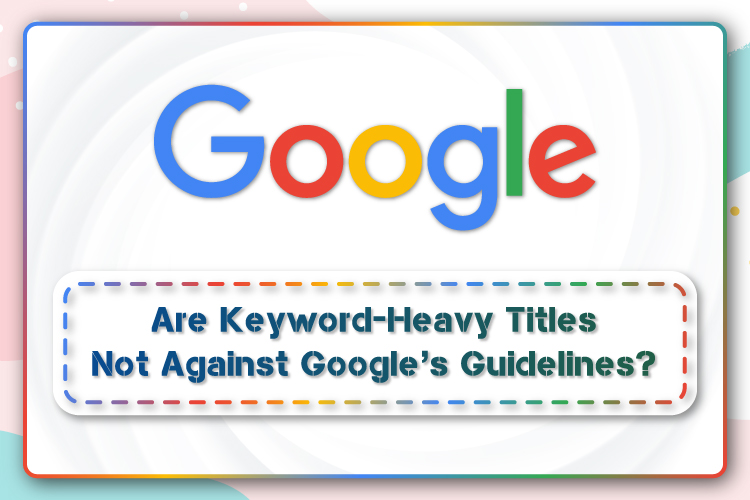Are Keyword-Heavy Titles Not Against Google’s Guidelines?

There is a bit of confusion surrounding keyword-heavy titles and descriptions, and Google’s John Mueller has clarified it as a common practice that does not violate the search engine’s webmaster guidelines.
Recently, during Google Search Central SEO live stream, this topic was addressed. An SEO professional told Mueller that very often, they see small businesses drenching their titles and descriptions with commercial keywords even after being advised not to do so.
For example, you must have come across some local business’ website with a description that looked like – “birthday caterers Florida, wedding caterers Florida, corporate caterers Florida, theme party caterers Florida …” and so on. This is pretty common to spot online.
While these aren’t exactly aesthetically pleasing, one can often find pages with such descriptions acquiring higher ranking positions in the SERPs.
The SEO professional asks Mueller why such keyword-heavy titles and descriptions are widespread in the SERPs and whether they violate Google’s webmaster guidelines.
Here’s what Mueller responded to this question.
Do Keyword-Heavy Titles and Descriptions Violate Google’s Guidelines?
In a very straightforward manner, Mueller said that soaking a web page’s meta title and descriptions with keywords in no way violates Google’s guidelines. In fact, this is not even something that the search engine deems to be troublesome.
However, this does not imply that Google endorses this practice either since loading your meta titles and descriptions with keywords can complicate things further, making it harder to grasp what that particular web page is relevant for. And perhaps this is a more serious concern, or at least it should be. If the search engine faces difficulty understanding your page’s relevance, it won’t show it up for the search queries you would want to rank for in the search results.
Mueller further added that by redrafting those titles and descriptions, the most significant development a website can expect to see is an improved CTR. The best thing SEOs can do is write a title that matches the user’s search query accurately so that when they come across your site, they will most probably click on it. While Mueller persistently pushes drafting better meta titles and descriptions for a better click-through rate, he never recommends doing so to increase your search rankings. According to him, even if your ranking remains the same, but you grab a higher CTR because users perceive you as more relevant for the solutions they are looking for, then it is actually good for your business.
Wrap Up
It is a common tactic to stuff keywords in titles and descriptions, and it emanates from Google considering keywords in titles and descriptions as ranking factors. But that does not mean people should place every single keyword in it.
Google’s Mueller suggests site owners take a more focused approach and create titles and descriptions that bring in more clicks from the search results instead of shoving a stack of keywords in an attempt to increase rankings.
For businesses, small businesses, in particular, a higher click-through rate is a much crucial aspect than higher search rankings. The reason is pretty simple. Small businesses are more focused on a specific region, and people recognizing them as relevant to their needs is just what they need to make their business successful. Besides, being focused in one particular area reduces their chances of having high search visibility in many places but having a title that resonates with their target audience’s needs matters more than just cramming all the keywords in there.
